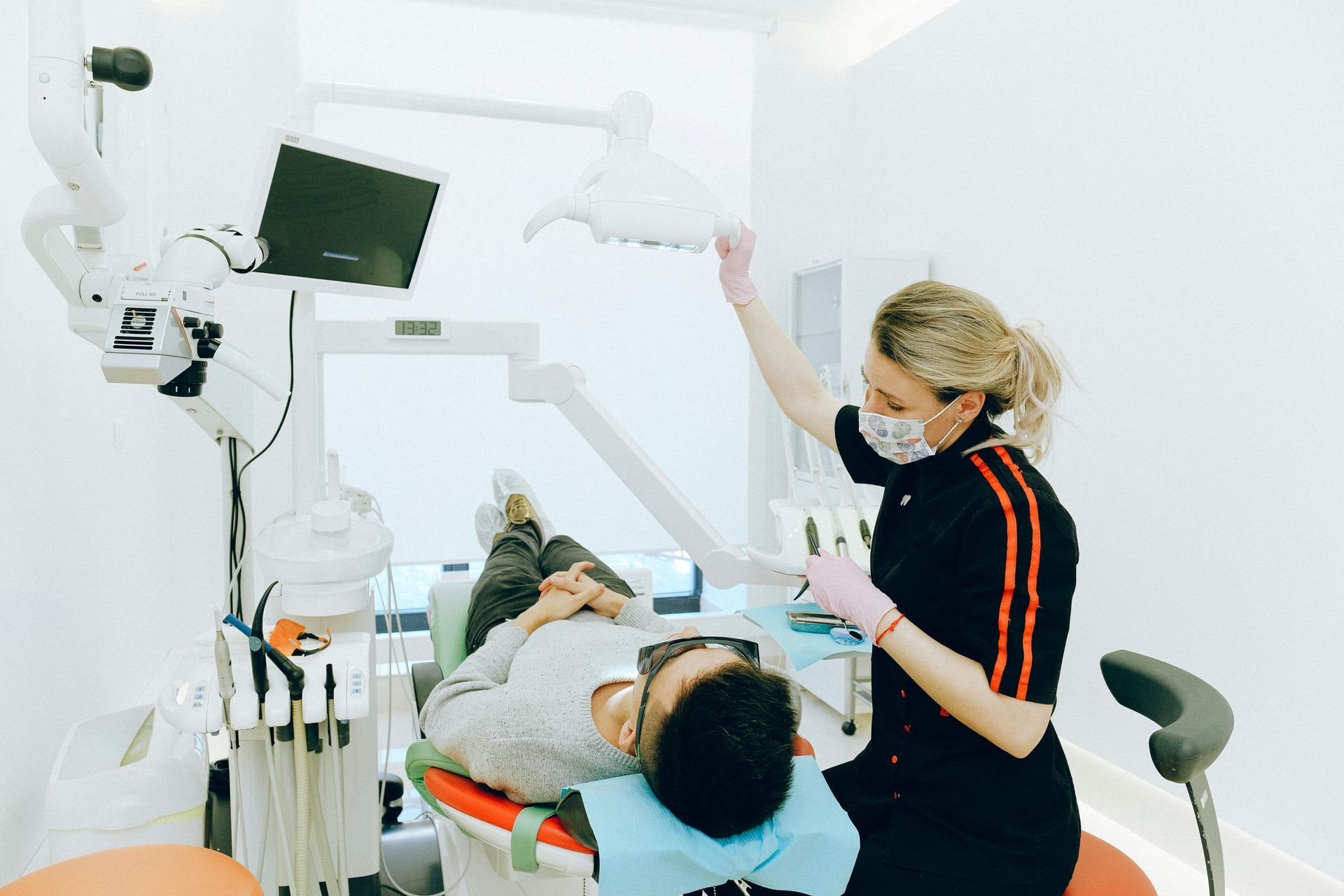Kipnis & Kahn LTD
Medical Malpractice
Holding Healthcare Providers Accountable for Medical Errors
Medical malpractice occurs when a healthcare provider fails to meet the standard of care, leading to harm or injury. This can involve misdiagnosis, surgical errors, medication mistakes, or failure to provide appropriate treatment. If you or a loved one has suffered due to medical negligence, seeking a qualified medical malpractice attorney in Chicago is essential to hold the responsible parties accountable and secure the compensation you deserve. We are committed to providing thorough and compassionate legal support to help you navigate the complexities of medical malpractice claims.
What Medical Malpractice Covers
Medical malpractice involves errors or omissions by healthcare professionals that deviate from accepted standards of care, resulting in harm to a patient. These cases can be complex, requiring an understanding of both medical procedures and legal principles. As experienced medical malpractice attorneys in Chicago, we offer comprehensive legal services to investigate, document, and litigate medical malpractice claims, ensuring that your case is handled with the utmost care and expertise.
Addressing Errors in Diagnosis to Secure Proper Treatment
Misdiagnosis or delayed diagnosis occurs when a healthcare provider fails to correctly identify a condition, leading to delayed or incorrect treatment. This can result in worsened health outcomes or unnecessary suffering.
How We Help:
- Case Evaluation: We review your medical records and consult with experts to determine if a misdiagnosis or delayed diagnosis occurred and how it impacted your health.
- Gathering Evidence: We collect and analyze evidence, including medical records and expert testimony, to build a strong case demonstrating negligence.
- Negotiation and Litigation: We negotiate with insurance companies or represent you in court to seek compensation for damages, including medical expenses, lost wages, and pain and suffering.
Common Questions:
- How can I prove that a misdiagnosis or delayed diagnosis led to harm? Proving harm involves showing that the diagnosis deviated from the standard of care, worsening health outcomes. We gather medical evidence and expert opinions to establish this link.
- What types of damages can I claim? You can claim medical expenses, additional treatment costs, lost wages, and pain and suffering. We help quantify these damages and seek appropriate compensation.
- How long do I have to file a medical malpractice claim? The statute of limitations varies by jurisdiction, typically from one to three years. We ensure your claim is filed within the appropriate time frame.
.
Holding Surgeons Accountable for Surgical Mistakes
Surgical errors can include mistakes during surgery, such as operating on the wrong body part, leaving instruments inside the patient, or causing harm. These errors can have serious, long-lasting effects on a patient’s health.
How We Help:
- Reviewing Surgical Records: We obtain and review surgical records to identify any deviations from the standard of care.
- Consulting Experts: We work with medical experts to assess if the surgical error was due to negligence and its impact on your health.
- Pursuing Compensation: We negotiate with healthcare providers or represent you in court to secure compensation for medical expenses, pain and suffering, and related damages.
Common Questions:
- What are the common types of surgical errors? Common errors include wrong-site surgery, leaving instruments inside a patient, and injuring surrounding organs. We investigate the specifics of your case to determine the nature of the error.
- How can I prove a surgical error caused my injury? Proving causation involves showing the surgical error deviated from the standard of care and directly led to injury. We gather records and expert testimony to establish this connection.
- What should I do if I suspect a surgical error? Seek medical attention and consult an attorney to evaluate your case. We guide you through the legal process and help you understand your options.
Seeking Justice for Medication-Related Mistakes
Medication errors occur when patients receive incorrect medications, improper dosages, or fail to receive necessary medications. These errors can lead to adverse reactions or ineffective treatment.
How We Help:
- Investigating the Error: We review medical records and prescription history to determine if a medication error occurred and its effects.
- Consulting Experts: We work with medical professionals to assess the impact and whether the error deviated from accepted standards of care.
- Legal Representation: We represent you in negotiations or court to pursue compensation for medical expenses, additional treatment costs, and other damages.
Common Questions:
- How can I prove a medication error caused my injury? Proving causation involves showing the error was due to negligence and resulted in harm. We gather evidence and expert opinions to establish this link.
- What types of damages can I claim? You can claim medical expenses, additional treatment costs, and pain and suffering. We help quantify these damages and seek appropriate compensation.
- What should I do if I believe I’ve been harmed by a medication error? Seek medical attention immediately and contact an attorney to discuss your case. We guide you through the claims process.
Addressing Failures in Diagnosis to Ensure Proper Care
Failure to diagnose occurs when a healthcare provider does not identify a medical condition, leading to a lack of treatment and potentially worsening the patient’s condition.
How We Help:
- Analyzing Medical Records: We review medical records to identify any missed diagnoses and evaluate whether the failure deviated from medical standards.
- Consulting Medical Experts: We work with experts to determine if the failure to diagnose was negligent and assess its impact on your health.
- Pursuing Legal Action: We negotiate with healthcare providers or represent you in court to secure compensation for medical expenses and pain and suffering.
Common Questions:
- How can I prove a failure to diagnose led to harm? Proving harm involves showing that the failure to diagnose deviated from the standard of care and worsened your condition. We gather evidence and expert opinions to support your claim.
- What are the common reasons for failure to diagnose? Common reasons include inadequate testing, misinterpretation of results, and failure to follow up on symptoms. We investigate your case to identify contributing factors.
- How long do I have to file a medical malpractice claim? The statute of limitations typically ranges from one to three years. We ensure your claim is filed within the appropriate time frame.
Seeking Accountability for Infections from Medical Procedures
Infections from medical procedures can occur if sterile techniques are not followed or if post-procedure care is inadequate, leading to complications and prolonged recovery.
How We Help:
- Reviewing Medical Procedures: We examine your medical records to determine if the infection resulted from negligence or inadequate care.
- Consulting with Experts: We work with experts to assess the infection’s origin and determine if it was caused by a breach of standard care.
- Pursuing Compensation: We negotiate with healthcare providers or represent you in court to secure compensation for medical expenses, pain and suffering, and additional damages.
Common Questions:
- How can I prove an infection was caused by a medical procedure? Proving causation involves showing the infection resulted from a breach of care. We gather medical records and expert opinions to establish this connection.
- What damages can I claim? You can claim damages for medical expenses, additional treatments, pain and suffering, and other losses related to the infection. We help quantify these damages.
- What should I do if I develop an infection after a procedure? Seek medical attention and consult an attorney to discuss your case. We guide you through the legal process and help you understand your options.




Need Legal Help? We’re Here for You.
Get A Free Consultation
Contact Form
We will get back to you as soon as possible.
Please try again later.
Downtown Chicago
180 W Washington St
Suite 1000
Chicago, IL 60602
Joliet Office
54 N Ottawa
Suite B80
Joliet, IL 60432
©2024 All Rights Reserved | Kipnis Kahn LTD | Privacy Policy | Powered by Levitate

